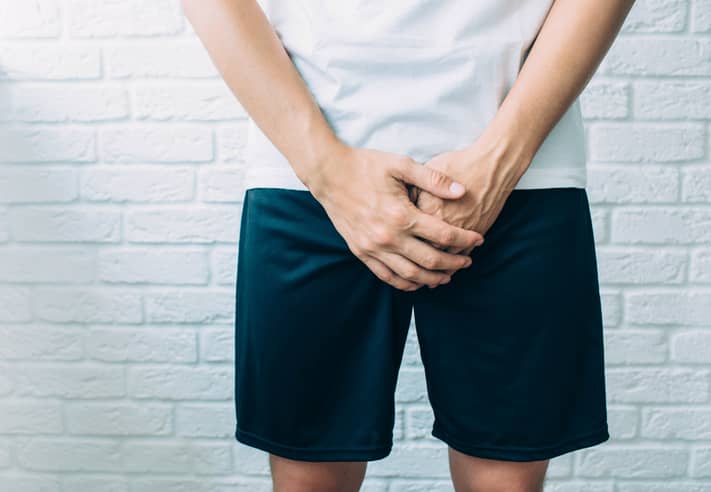Common causes for a smelly and sore penis include:
- smegma
- balanitis
- sexually transmitted infection
- non-specific urethritis
Smegma
If you don't wash your penis every day, a cheesy-looking substance called smegma can build up. Smegma is a natural lubricant that keeps the penis moist. It's found on the head of the penis and under the foreskin.
If smegma builds up in the foreskin, it can:
- start to smell
- prevent easy foreskin movement
- become a breeding ground for bacteria
This can cause redness and swelling (inflammation) of the head of your penis, called balanitis.
Balanitis
As well as poor hygiene, balanitis can be caused by:
- an infection, such as thrush
- skin conditions, such as psoriasis
- irritation to the skin, for example, caused by soap, medication or condoms
See a doctor if you think you may have symptoms of balanitis. They can diagnose your condition and treat the underlying cause.
Sexually transmitted infections (STIs)
An STI can sometimes cause a sore and smelly penis. Some examples of STIs and their symptoms include:
- gonorrhoea: this can cause an unusual white, yellow or green discharge from the tip of your penis, pain or a burning sensation when urinating and inflammation of the foreskin
- chlamydia: this can cause a white, cloudy or watery discharge from the tip of your penis, pain when urinating and pain in the testicles
Non-specific urethritis (NSU)
Urethritis is inflammation of the urethra (the tube running from the bladder to the tip of the penis). Urethritis is normally caused by an STI but if the cause is unknown, it's called non-specific urethritis (NSU). NSU can make your penis sore.
Symptoms of NSU include:
- a white or cloudy discharge from the tip of your penis
- a burning or painful sensation when you urinate
- the tip of your penis may feel irritated and sore
- a frequent need to urinate
Seek medical advice
If you have any symptoms of an STI or NSU, such as pain or unusual discharge, see your GP or visit a sexual health clinic as soon as possible.
Many infections are easily treated, for example:
- with medications, such as antibiotics or antifungal creams
- by using simple self-care measures, such as more frequent washing
If the skin of your penis is irritated, avoid anything that might make it worse, such as particular brands of soap.





